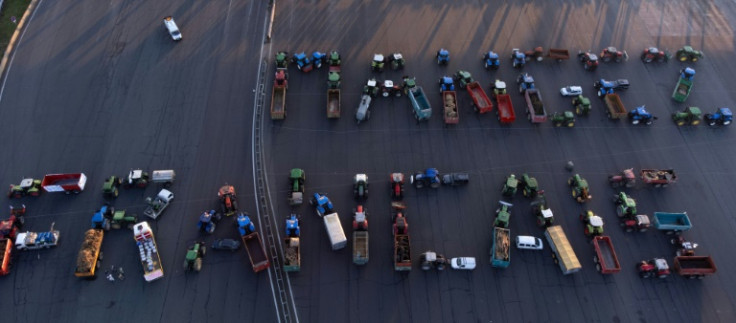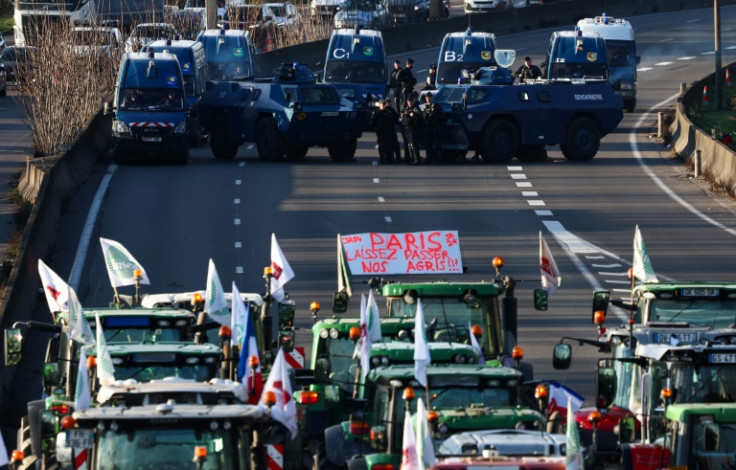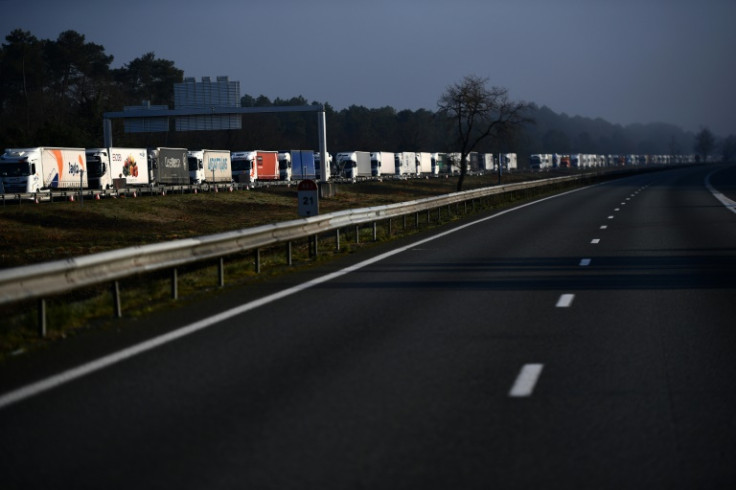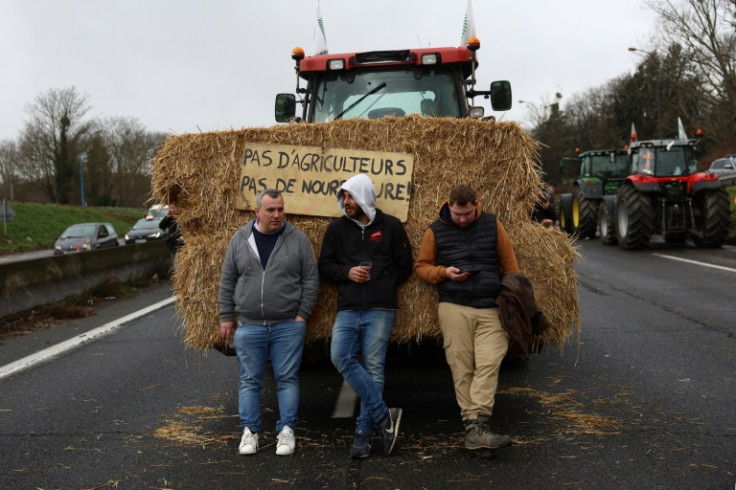French Farmers' Unions Call For End To Roadblock Protests

France's leading farming unions called Thursday to end nationwide roadblocks over pay, tax and regulation after securing promises of financial assistance and other help from the government.
"We have decided to suspend the roadblocks... and move to a new form of mobilisation," Young Farmers (JA) president Arnaud Gaillot said at a press conference alongside Arnaud Rousseau, chief of the biggest rural union FNSEA which is closely allied to the JA.
Farmers have been out in force for more than a week in protests triggered by an agricultural fuel duty hike, complaining their pay is squeezed, taxes are too high and regulations too onerous.
The easing in tensions followed promises of cash, eased regulations and protection against unfair competition by Prime Minister Gabriel Attal and his cabinet earlier Thursday, the government's second wave of concessions in the space of a week.
Together the FNSEA and JA account for the majority of French farmers' union memberships although it was not immediately clear if other groups would follow suit.
Rousseau hailed "real progress" and said Attal was "listening... to try and understand what's at stake for us, inviting us in, talking, discussing and announcing emergency measures".
But the union chief said he would look to see "initial results" by the time the major Salon de l'Agriculture trade fair opens at the end of this month and for European measures by June.
"If these markers are not met, we won't hesitate to resume a general mobilisation," JA boss Gaillot said.
Rousseau reserved harsh criticism for "deafness" to farmers' woes at the European level.
He lambasted a "growing lack of understanding between a technocratic structure walled into its Brussels offices and the reality of what we experience on our farms".
Attal had earlier said he wanted to "better recognise the farming profession", "protect (farmers) against unfair competition" and "give value back to our food".
He offered up measures including an annual 150 million euros ($162 million) for livestock farmers and a ban on food imports treated with thiacloprid, a neonicotinoid pesticide already banned in France.
He also vowed to ensure a clear Europe-wide definition of lab-grown meat, a technology still in its infancy.
All major supermarkets will be audited for compliance with a law supposed to ensure fair prices for farmers' produce, Finance Minister Bruno Le Maire added at the same Paris press conference.
And France's national plan for reducing pesticide use "will be put back on the drawing board", Agriculture Minister Marc Fesneau said.
Thursday's offer to the farmers follows a first round of concessions last week, including the withdrawal of the resented fuel tax hike.
It also came as European leaders gathered in Brussels for a summit overshadowed by farmers' protests that have spread to multiple countries in recent weeks.
In a sign of the pressure on Paris, President Emmanuel Macron held one-on-one talks with European Commission chief Ursula von der Leyen to discuss "the future of European agriculture" before the summit.
The European Union has in recent days announced a temporary exemption from rules requiring some farmland to be left fallow.
The bloc could also limit imports of some Ukrainian agricultural products, on which tariffs were dropped following Russia's 2022 invasion.
France's government hailed the moves as a victory for its lobbying, but they were not enough to soothe the farmers' grievances.
Many have demanded a full withdrawal from a long-negotiated free-trade deal with South American bloc Mercosur.
Paris has said it will not accept the agreement in its current form, although some other EU nations are determined to press ahead.
There were tense scenes at some farmers' roadblocks in France Thursday, as demonstrators demanded passing truck drivers open up their cargoes for them to check the origin of produce.
Meanwhile a group of 79 farmers were released after being held in custody for a Wednesday incursion into Rungis, a wholesale food hub serving the Paris region, with prosecutors saying they will investigate for property damage.
Farmers protests have been seen in several other EU countries such as Germany, Belgium, Poland, Greece, Romania and the Netherlands.



© Copyright AFP 2024. All rights reserved.






